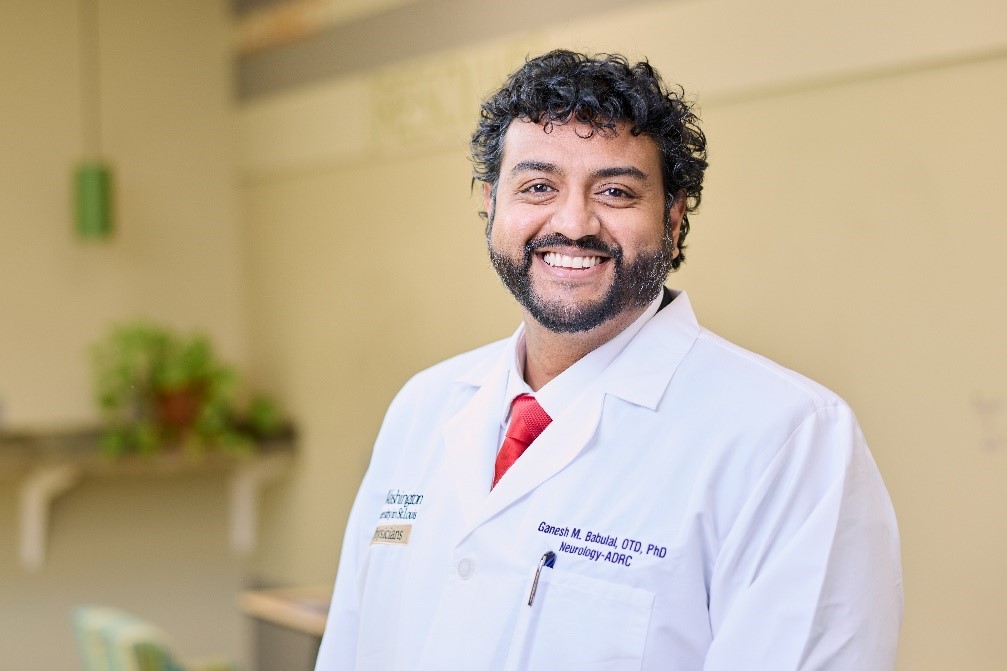
Dr. Ganesh Babulal, PhD, OTD, MSCI, MOT, OTR/L
Associate Professor: Department of Neurology, Washington University School of Medicine
Research Associate: Dept of Psych., U. of Johannesburg, SA
Adjunct Associate Prof: George Washington University, DC
Investigator: Knight ADRC, WUSM
Faculty Scholar: Institute for Public Health, WUSM
Dr. Babulal investigates the relationship between cognitive function and mental health and its impact on IADLs like driving. His funded research programs include 1) characterizing functional changes in older adults using biomarkers, 2) predicting global decline in aging using neurobehavioral markers, 3) assessing how social forces influence brain health and well-being, and 4) examining how social determinants of health impact adverse health outcomes in underrepresented, minoritized groups and vulnerable populations in Low and Middle-Income Countries.
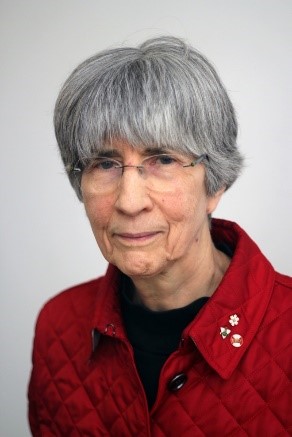
Dr. Sandra E Black,
O.C., O.Ont., Hon.DSc., MD, FRCP(C), FRSC, FANA, FAHA, FAAN
Professor of Medicine (Neurology), Department of Medicine, Sunnybrook Health Sciences Centre & University of Toronto
Scientific Director, Dr. Sandra Black Centre for Brain Resilience and Recovery,
Hurvitz Brain Sciences Research Program, Sunnybrook Research Institute, Sunnybrook HSC, U Toronto
Sandra E Black, O.C., O.Ont., Hon.DSc., MD, FRCP(C), FRSC, FANA, FAHA, FAAN, Professor of Medicine (Neurology Division) at Sunnybrook HSC, U Toronto, is an internationally known cognitive and stroke neurologist, who has been actively engaged in > 70 pharmaceutical trials in the last 3 decades, including recent potential Disease Modifying Therapies. She has published >650 peer publications (+70 invited) (Google HI 132; 76,969 citations) in a research career bridging dementia and stroke, using standardized, quantitative neuroimaging, cognitive, functional and neuropsychiatric the measures, genetics, and neuropathology to study brain-behavior relationships across the common dementias, with a focus on inter- relationships of Small Vessel Disease and neurodegeneration (brainlab.ca). In the Research.com 2022 ranking of the top cited 1000 women scientists world-wide, she was ranked 8th in Canada and 298th in the world. Dr Black was inaugural Executive Director of the Toronto Dementia Research Alliance (2012-20), a collaboration of U of T's university hospital memory programs, which assess >2000 new patients a year, potentially linkable with consent, to the Institute of Clinical Evaluative Sciences for Health Services research. (https://tdra.utoronto.ca). In 2020, she became Scientific Director of the Dr. Sandra Black Centre for Brain Resilience and Recovery, through a $10M anonymous lead gift. She has served on the Executive Committee for the Alzheimer's Disease Neuroimaging Initiative (ADNI) since 2011. Recognitions include Fellowship, Royal Society of Canada, U of Toronto's Faculty of Medicine Dean's Lifetime Achievement Award, an Honorary Doctor of Science from Waterloo University, the Distinguished Achievement Award of AAN's Society of Cognitive and Behavioral Neurology, University of British Columbia's 2022 Margolese Brain Disorders prize, recognizing Canadians who have made outstanding contributions to amelioration and treatment of brain disorders, and the Bill Thies Distinguished Service Award from the Alzheimer Association International Congress (2022). She was appointed Member of the Order of Ontario (2011) and Officer of the Order of Canada (2015) for her contributions to Alzheimer's disease, stroke, and vascular dementia.

Dr. John Breitner, M.D., MPH
Director, Centre for Studies on Prevention of Alzheimer's Disease (StoP-AD), Douglas Research Centre
Full Professor, Department of Psychiatry, McGill University
Dr. Breitner has devoted his career to investigation of factors that modify the risk of Alzheimer's dementia (AD). Initial studies on familial aggregation used new methods to demonstrate that AD (including late-onset disease) is a strongly familial disorder. To investigate the role of genetic vs. environmental factors responsible for this familial aggregation, Dr. Breitner initiated a large, population-based twin study that is still ongoing with over 300 affected pairs now identified. The twin studies suggested a substantial adult environmental contribution to AD susceptibility, and a co-twin control study found that non-steroidal anti-inflammatory drugs (NSAIDs) were used more frequently by the unaffected member of such pairs. This finding was reproduced many times in relatively young samples (it does not seem to hold in persons older than age 80 years). Dr. Breitner therefore led efforts to conduct a large randomized trial (ADAPT) of two different NSAIDs in healthy elderly with a strong family history of AD, who were accordingly at increased risk. ADAPT encountered substantial difficulties because of safety concerns about sustained use of NSAIDs (especially newer “coxib” agents) by older people, and its treatments were therefore terminated in 2005, when most participants had been on treatment for only two years. Participants were followed closely for another 18 months, during which time ADAPT collected biosamples (including cerebrospinal fluid, or CSF) from those remaining under observation. During the follow-up interval, participants treated earlier with naproxen showed reduced incidence of AD (compared with those given placebo). They also had a biochemical profile in their CSF that suggested diminished ongoing AD neurodegenerative change. The latter observation established a precedent for the possible use of biomarkers as endpoints for intervention trials in the pre-symptomatic stages of Alzheimer's disease. Dr. Breitner (and others) recognized the potential for this sort of research as a promising pathway to the prevention of AD.
Dr. Breitner was recruited by the Douglas Mental Health University Institute and McGill University to lead a new Centre for Studies on Prevention of Alzheimer's Dementia (StoP-AD) at the Douglas. The Centre's research program evaluates whether treatments can reduce cognitive, chemical, neuroimaging or sensorineural biomarkers that may track the development of Alzheimer's disease in its pre-symptomatic stages.
Dr. Breitner has authored over 200 publications (H-index 64 per Web of Science) and is known as an outstanding teacher. He has mentored more than 15 doctoral and post-doctoral students who have gone on to hold full-time academic appointments.

Dr. Brandy L. Callahan PhD, RPsych (Clinical Psychology)
Associate Professor, Department of Psychology, University of Calgary
Brandy Callahan is an Associate Professor of Psychology and Canada Research Chair at the University of Calgary. She holds a PhD in Clinical Neuropsychology from Université Laval, and completed clinical and research fellowships at Baycrest and Sunnybrook Health Sciences Centres. Her research program integrates neuropsychology and physiological biomarkers to better understand age-related brain changes in adults and seniors with complex medical and psychiatric histories. A major focus of this work is to determine mechanistic interactions between normal aging, ADHD, and neurodegenerative disease.
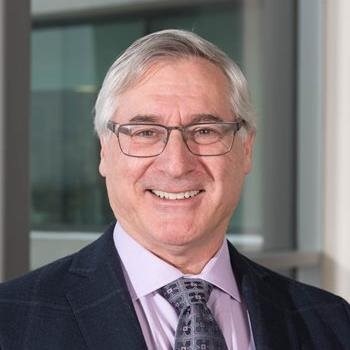
Dr. Howard Chertkow MD, FRCP, FCAHS
Chair in Cognitive Neurology and Innovation and Senior Scientist,
Baycrest Academy for Research & Education
Director, Kimel Centre for Brain Health and Wellness and Anne & Allan Bank Centre for Clinical Research Trials
Scientific Director, Canadian Consortium on Neurodegeneration in Aging
Professor of Neurology (Medicine), University of Toronto
Adjunct Professor, Dept. of Neurology and Neurosurgery, McGill University
Dr. Chertkow is a cognitive neurologist at the Baycrest Health Sciences Centre. He is a Senior Scientist and Chair in Cognitive Neurology and Innovation at Baycrest's Rotman Research Institute. He is a Professor in the Dept. of Medicine (Neurology) at University of Toronto. At Baycrest he is also director of the new Bank Family Clinical Trials Research Unit and the Kimel Family Centre for Brain Health. His major areas of research interest include early diagnosis of Alzheimer's disease, and therapy of dementia using neuromodulation approaches such as transcranial direct current stimulation. Dr. Chertkow is Scientific Director for the Canadian Consortium on Neurodegeneration in Aging (CCNA), a national organization established by the Canadian government via CIHR and partners.

Dr. Lindsay Crowshoe PhD, MD
Associate Professor & Assistant Dean, Department of Family Medicine & Indigenous, Local and Global Health Office, University of Calgary
Lynden (Lindsay) Crowshoe MD is a Blackfoot primary care physician and researcher, member of the Piikani First Nation, Associate Professor of Medicine and Assistant Dean Indigenous Health at the University of Calgary (UC) Cumming School of Medicine (CSM). He has experience leading provincial, national and international research teams focusing on primary care, public health and health education. In research, he brings together and bridge multiple disciplines of knowledge including health, clinical, social sciences, professional health education and Indigenous Ways of Knowing.
He is the NPI of the Education for Equity (E4E) projects, which have transformed diabetes health care with Indigenous Peoples within Canada. The E4E clinical framework provides policy and provider direction in addressing the complex interplay structural, systemic, social and cultural contexts within clinical care. He is also the NPI of the Alberta Network Environments for Indigenous Health Research-Indigenous Primary Health Care and Policy Research Network (NEIHR-IPHCPR) which brings together Indigenous-focused primary healthcare stakeholders in Alberta including community members, health care providers and policy-makers for health systems renewal and transformation. The Alberta NEIHR-IPHCPR, grounded in the principles and health legacy Calls to Action of the Truth and Reconciliation Commission of Canada, aims to advance research that links knowledge to policy and practice, fomenting PHC evidence-informed systems innovations based in equity and Indigenous Ways of Knowing. He is also the national co-lead of the CCNA (Canadian Consortium on Neurodegeneration in Aging) Team 18, focused on issues in dementia care for older Indigenous people. In this work, Dr. Crowshoe has lead the adaptation and validation of an Indigenous cognitive screening tool for urban Indigenous populations.
Dr. Crowshoe has provincial leadership experience in Indigenous PHC (primary health care) services, systems and policy; provides national input on Indigenous PHC; and has led multidisciplinary Indigenous PHC teams both on reserve and urban. He provides clinical service to the urban Indigenous population of Calgary at the Elbow River Healing Lodge, an AHS primary health service model that he developed. He provides input on Indigenous health education policy and programming within national organizations (Association of Faculties of Medicine, the College of Family Physicians of Canada and the Royal College of Physicians and Surgeons of Canada) and leads similar activities within his local institution, the Cumming School of Medicine in his role as Assistant Dean.

Dr. Jeffrey L. Cummings MD, ScD
Joy Chambers-Grundy Professor of Brain Science
Director, Chambers-Grundy Center for Transformative Neuroscience
Co-Director, Pam Quirk Brain Health and Biomarker Laboratory
Department of Brain Health, School of Integrated Health Sciences
University of Nevada Las Vegas (UNLV)
Jeffrey Cummings, MD, ScD, is the Joy Chambers-Grundy Professor of Brain Science, Director of the Chambers-Gundy Center for Transformative Neuroscience, Co-Director of the Pam Quirk Brain Health and Biomarker Laboratory, Department of Brain Health, School of Integrated Health Sciences, University of Nevada Las Vegas. He is globally known for his contributions to Alzheimer's research, drug development, and clinical trials. Dr. Cummings was formerly Director of the Mary S. Easton Center for Alzheimer's Disease Research at UCLA, and Director of the Cleveland Clinic Lou Ruvo Center for Brain Health. He has authored or edited 43 books and over 850 peer-reviewed papers.
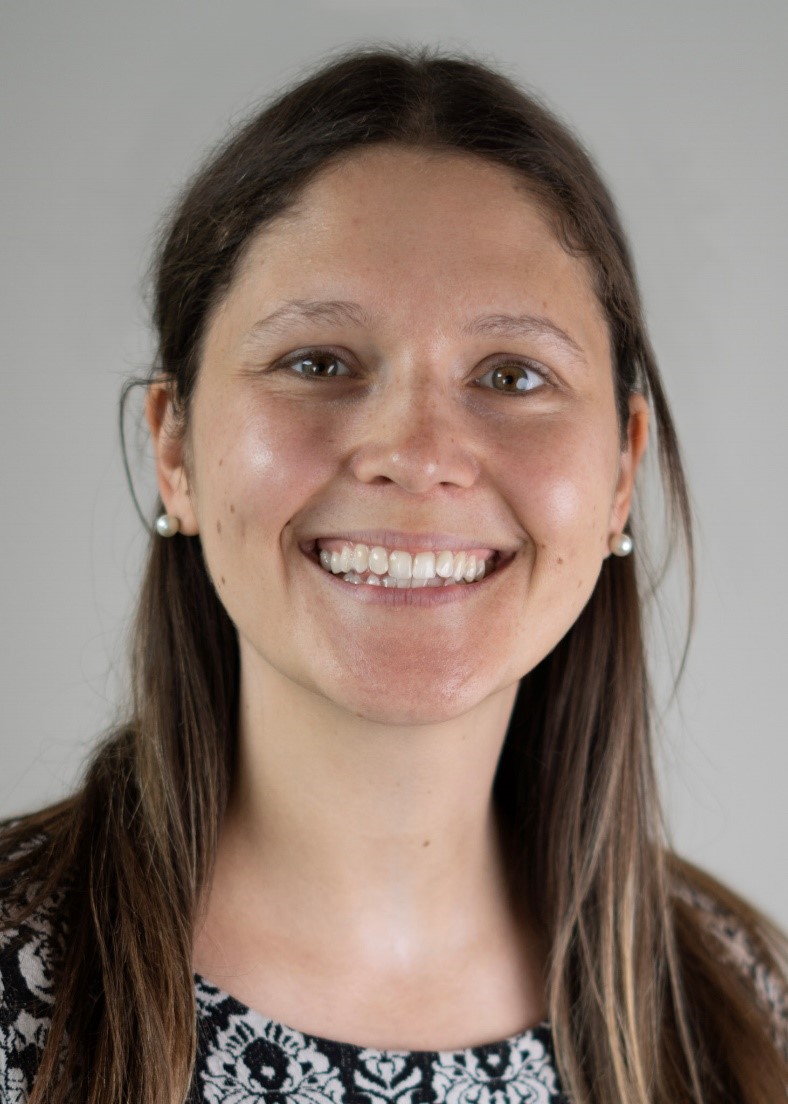
Dr. Sophie Del Degan, MD, M. Ed., FRCPC
Internist-geriatrician, Department of Medicine, CHUM (Centre hospitalier de l'Université de Montréal), Montréal.
Adjunct Clinical Professor, Université de Montréal.
Dr. Del Degan is an internist-geriatrician at the CHUM (Centre hospitalier de l'Université de Montréal), a teaching hospital in Montréal. She studied at Université Laval in Quebec City, where she obtained her medical degree and completed her residency in internal medicine. She finished her residency in geriatric medicine at the Université de Montréal (UdeM).
Last year, she completed a Cognitive Neuroscience fellowship with a focus on vascular dementia at the University of Calgary, under the supervision of Dr. Eric Smith. Following her passion for teaching, she recently completed a Master of Education in university pedagogy for medical sciences, at UdeM.
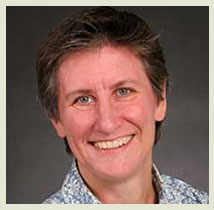
Dr. Jocelyn Downie SJD, FRSC, FCAHS
University Research Professor, Faculties of Law and Medicine, Dalhousie University; Dalhousie Health Law Institute
Jocelyn Downie is a University Research Professor in the Faculties of Law and Medicine at Dalhousie University. Her work on end-of-life law and policy includes: Special Advisor to the Canadian Senate Committee on Euthanasia and Assisted Suicide; author of “Dying Justice: A Case for the Decriminalizing Euthanasia and Assisted Suicide in Canada”; and member of the Royal Society of Canada Expert Panel on End-of-Life Decision-Making, the plaintiffs' legal team in Carter v. Canada (Attorney General), the Provincial-Territorial Expert Advisory Group on Physician-Assisted Dying, and the Canadian Council of Academies Expert Panel on Medical Assistance in Dying. She was named a member of the Order of Canada in part in recognition of her work advocating for high-quality, end-of-life care. She is also a Fellow of both the Royal Society of Canada and the Canadian Academy of Health Sciences.
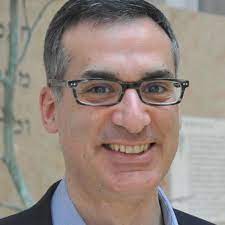
Dr. Sid Feldman MD, CCFP, FCFP
Physician, North York Family Health Team; Physician and Medical Director, Jewish Home for the Aged, Baycrest; Chief, Department of Family and Community Medicine, Baycrest; Associate Professor, Department of Family and Community Medicine, University of Toronto
Dr. Sid Feldman is an Associate Professor and Head of the Division of Care of the Elderly at the University of Toronto Department of Family and Community Medicine, a family physician with the North York Family Health Team, and Chief of Family and Community Medicine at Baycrest Health Sciences. He is currently the Chair of the Members' Interest Group in Care of the Elderly at the College of Family Physicians of Canada. Dr. Feldman brings a wealth of experience in caring for older adults in community and long-term care.
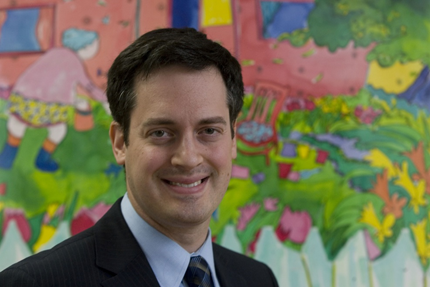
Dr. Andrew Frank MD BScH FRCP(C)
Cognitive and Behavioural Neurologist
Bruyère Memory Program
Élisabeth Bruyère Hospital
Ottawa, Ontario
Dr. Andrew Frank is a cognitive/behavioural neurologist and researcher at Bruyère Memory Program at the Élisabeth Bruyère Hospital in Ottawa, Ontario. After finishing his Bachelor's degree in Honours Biochemistry at the University of Calgary, Dr. Frank completed his M.D. at the University of British Columbia in Vancouver. He completed his residency in Neurology at the University of Ottawa. Following this, Dr. Frank undertook a subspecialty fellowship in Cognitive and Behavioural Neurology at the Mayo Clinic in Rochester, Minnesota.
Dr. Frank's clinical practice is focused on the diagnosis and treatment of neurodegenerative diseases, such as dementia due to Alzheimer's disease. His clinical interest lies in the early detection of cognitive disorders, such as Mild Cognitive Impairment (MCI). Dr. Frank's research interest centers on investigating new pharmacologic treatments and technologies for Alzheimer's disease.

Dr. Chris Frank MD, CCFP, FCFP
Professor, Department of Medicine, Queen's University;Program Director, Enhanced Skills Care of the Elderly Program, Queen's University
Chris Frank is a professor of Medicine at Queen's University. He did his family medicine training at Queen's and has worked in the Division of Geriatric Medicine at Providence Care Hospital for a long time. He works in geriatric clinics, acute care consults, geriatric rehab, and in the Palliative Care Unit. He rides his bike and plays music for dementia prevention.

Dr. Maiya Geddes MD, FRCPC
Killam Scholar, Assistant Professor in the Department of Neurology and Neurosurgery, Montreal Neurological Institute, McGill University
Maiya Geddes is a neurologist scientist, Killam Scholar, and an Assistant Professor in the Department of Neurology and Neurosurgery at McGill University. She directs a neuroimaging lab at the Montreal Neurological Institute. The goal of Dr. Geddes' translational research program is to understand the neurobiological mechanisms underlying motivational resilience in human aging and early Alzheimer's disease and to apply these findings to help older adults lead healthier and more fulfilling lives. Dr. Geddes applies a converging methods approach that combines cutting-edge behavioral and multi-modal neuroimaging techniques including task-based and resting-state fMRI. Dr. Geddes completed a Neurology Residency at McGill, followed by a five-year CIHR postdoctoral research fellowship at MIT and a UCNS Behavioral Neurology and Neuropsychiatry clinical fellowship at Harvard. Dr. Geddes has received funding from NSERC, Brain Canada Foundation, ASRP, CIHR, FRQS, HBHL, QBIN, and the NIH. She is passionate about training the next generation of clinician-scientists and serves as a Director of the McGill Cognitive Neurology Fellowship Program.
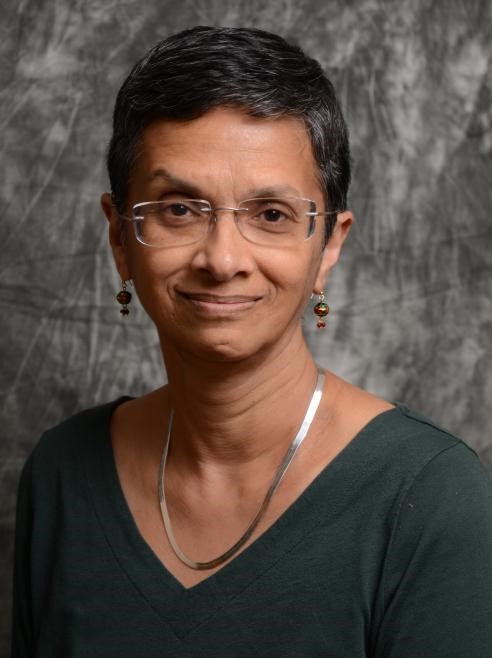
Dr. Mary Ganguli MD, MPH, FRCP(C)
Professor of Psychiatry, Neurology, and Epidemiology,
School of Medicine and School of Public Health,
University of Pittsburgh
Dr. Mary Ganguli completed medical school at Christian Medical College, Vellore, India and psychiatry residency at Memorial University of Newfoundland and then at the University of Pittsburgh. Her research on the epidemiology of cognitive impairment and dementia has been continuously funded by the National Institute on Aging of NIH since 1986. Her service includes membership on the US National Advisory Council on Aging, the DSM-5 Work Group of the American Psychiatric Association, and the Practice Parameter on MCI Work Group of the American Academy of Neurology. She is also a practicing geriatric psychiatrist at the University of Pittsburgh Medical Center.
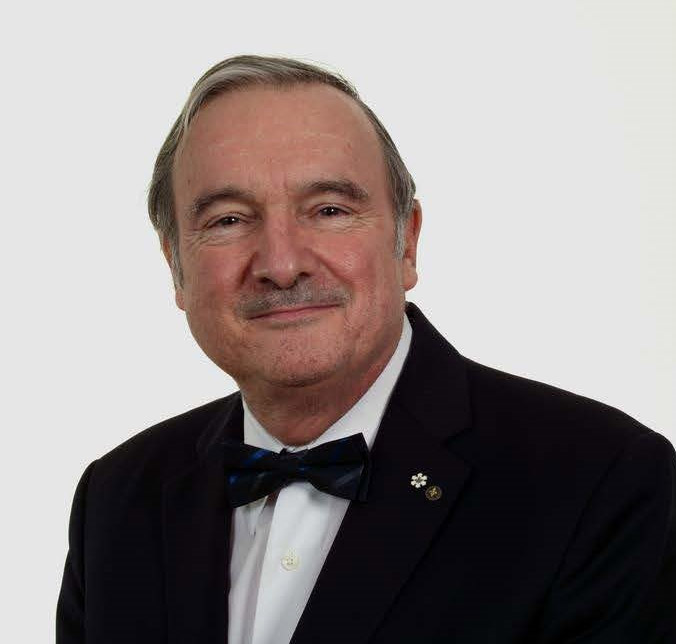
Dr. Serge Gauthier, C.M., C.Q., MD, FRCPC
Dr Serge Gauthier is Emeritus Professor in Neurology and Psychiatry at McGill University. Previously he was Director of the Alzheimer's disease Research Unit at the McGill Centre for Studies in Aging, Director of the McGill Centre for Studies in Ageing and holder of a Research Chair at the Canadian Institute for Health Research, Clinical Investigator and Staff Neurologist at the Montreal Neurological Hospital and Institute.
His research interests include aetiology and treatment of Alzheimer's disease and other related diagnosis, development of consensus guidelines on approval and use of antidementia drugs, and on the rights of persons with dementia to participate in research. His publications include Clinical Diagnosis and Management of Alzheimer's Disease (2006), Case Studies in Dementia (2021), ADI's World Alzheimer Reports (2021, 2022).
His contributions to research include design and implementation of randomised clinical trials to establish the safety and efficacy of cholinesterase inhibitors, muscarinic agonists, and agents possibly modifying progression of Alzheimer's disease and vascular dementia. He was a recipient of the Prix Galien Award in 1997, the Order of Canada in 2014 and the Order of Québec in 2017.
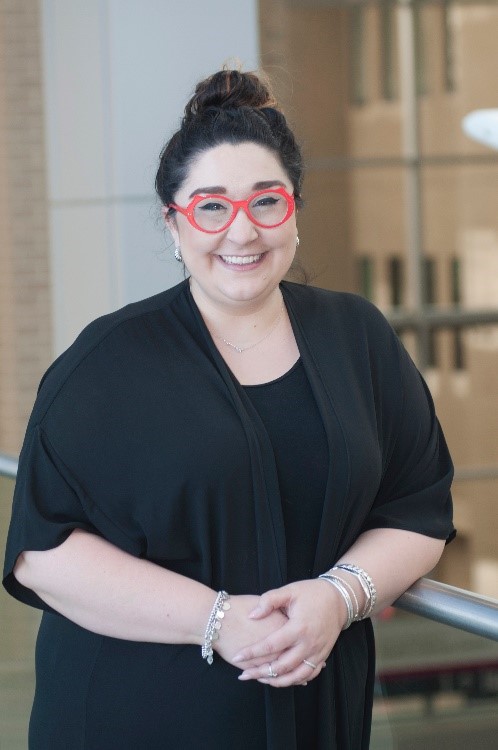
Dr. Zahra Goodarzi BHSc (Hon). MD. MSc.
Assistant Professor, Division of Geriatrics, Department of Medicine
Deputy Division Head Geriatric Medicine
Program Director for Leaders in Medicine
Cumming School of Medicine
Hotchkiss Brain Institute, O'Brien Institute of Public Health
University of Calgary
Dr. Zahra Goodarzi is an academic geriatrician. She completed residency training in Internal Medicine and Geriatrics at the University of Calgary. Most recently Dr. Goodarzi completed her Master of Science in Community Health Sciences specializing in Health Services Research. She is currently an Assistant Professor in the Section of Geriatrics within the Department of Medicine and Department of Community Health Sciences at the University of Calgary.
Her major research interests involve knowledge translation, knowledge synthesis and qualitative methods to improve the lives of older adults. Her specific methodological expertise is in synthesis and qualitative methods.
Specifically focused on the cross section of mental illness and neurologic diseases. Her work has focused on depression and anxiety in those experiencing dementia and Parkinson's disease. As well as the experiences of frail older adults living in supportive living and long-term care with concomitant mood disorders or neuropsychiatric symptoms.
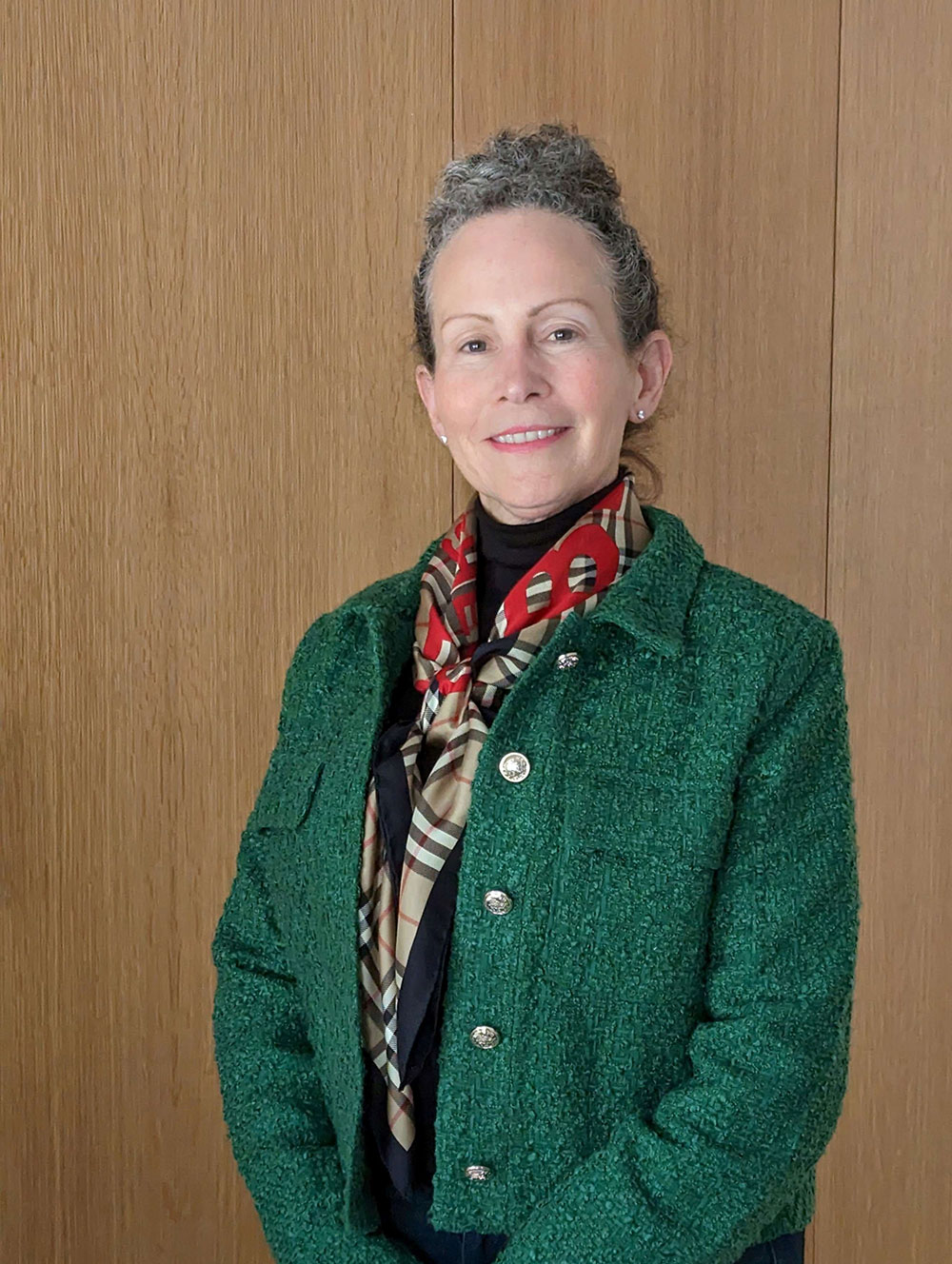
Dr. Stacey Hatch Ph.D., Registered Psychotherapist
Ph.D., Registered Psychotherapist
CIHR Health Systems Impact Fellow
Postdoctoral Associate, Hotchkiss Brain Institute,
Cumming School of Medicine, University of Calgary
Adjunct Professor, Master of Arts in Counselling Psychology, Yorkville University
Dr. Hatch is a researcher-clinician-educator. She is a CIHR Post-Doctoral Health Systems Impact Fellow and Postdoctoral Associate at the University of Calgary. As a registered psychotherapist, Dr. Hatch worked in primary care in Ontario and was the mental health lead/coordinator of the Mint Memory Clinic. She maintains a practice in Prince Edward County. Dr. Hatch is an adjunct professor in the Master of Arts in Counselling Psychology Program at Yorkville University. Her research focuses on treatments for older adult mental health, the development of national guidelines for the treatment and management of BPSD in dementia, and knowledge mobilization in geriatric mental health.

Dr. Ging-Yuek Robin Hsiung MD MHSc FRCPC, FACP, FAAN
Associate Professor, Division of Neurology, Department of Medicine, Faculty of Medicine, University of British Columbia; Neurologist, UBC Hospital Clinic for Alzheimer Disease and Related Disorders
Dr. Hsiung's work focuses on understanding the neurological basis of cognition and the pathological mechanisms that can lead to dementia. Dedicated to transforming research discoveries into tools and therapies, Dr. Hsiung is currently testing biomarkers and cognitive assessments tools to help clinicians identify the early phases of this degenerative brain disease. Dr. Hsiung has been elected President of the Consortium of Canadian Centres for Clinical Cognitive Research (C5R), which coordinates and streamlines clinical trials across a network of specialized clinics across Canada. Dr. Hsiung is also the lead for the Frontotemporal Dementia team in the Canadian Consortium on Neurodegeneration and Aging (CCNS), a Canada-wide network of over 350 researchers aiming to research the cause and cure of dementing disorders, as well as improving the care of patients suffering from dementia. The current study collects data on patients with a range of neurodegenerative cognitive disorders using specialized tests on mental functioning, as well as magnetic resonance imaging data, to help predict dementia risk and provide early intervention to slow cognitive decline.
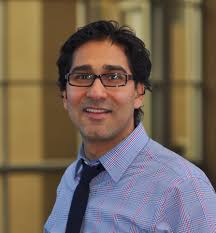
Dr. Zahinoor Ismail, MD FRCPC
Dr Zahinoor Ismail is a Clinician Scientist and Professor of Psychiatry, Neurology, Epidemiology, and Pathology at the Hotchkiss Brain Institute and O'Brien Institute for Public Health, at the University of Calgary. He has certification in Behavioral Neurology & Neuropsychiatry, and Geriatric Psychiatry, and has over 20 years of clinical experience. His research program encompasses: i) rating scale development and measurement-based care in neurological and psychiatric disorders; ii) neuropsychiatric disease epidemiology and diagnosis; iii) nosology, assessment, and management of non-cognitive markers of dementia; iv) neuroimaging and biomarker studies of dementia and predementia syndromes; and v) dementia clinical trials of cognitive and non-cognitive outcomes. His research has been funded by Brain Canada, the Canadian Consortium on Neurodegeneration in Aging, and the Canadian Institutes of Health Research.
Dr. Ismail is Chair of the Canadian Consensus Conference on the Diagnosis and Treatment of Dementia, which generates Canadian dementia guidelines, the most recent iteration of which were published in 2020. He is also Chair of the Canadian Conference on Dementia, and Academic Co-chair of the US Alzheimer's Association-ISTAART Neuropsychiatric Syndromes Professional Interests Area. Dr Ismail led the ISTAART development of the neurobehavioural syndrome Mild Behavioural Impairment (MBI) and the MBI Checklist, and co-led development of the new research criteria for biomarker and phenotypic classification of psychosis in AD and related dementias. Dr. Ismail is a contributor to international working groups advancing nosology in neurodegenerative diseases. He is an author on the revised IPA criteria for Psychosis in Neurocognitive Disorders, ISCTM-ISTAART criteria for Apathy in Neurocognitive Disorders, and the upcoming revision of the IPA criteria for Agitation in Neurocognitive Disorders.

Dr. Krista L. Lanctôt, PhD
Bernick Chair in Geriatric Psychopharmacology;
Director, Neuropsychopharmacology;
Senior Scientist, Hurvitz Brain Sciences Program;
Professor of Psychiatry and Pharmacology,
Vice Chair, Basic and Clinical Sciences, Department of Psychiatry,
Dr. Krista Lanctôt has a PhD in Clinical Pharmacology from the University of Toronto. She holds the Bernick Chair is Geriatric Psychopharmacology and is a Senior Scientist in Geriatric Psychiatry and in the Hurvitz Brain Sciences Program at Sunnybrook Research Institute, Research Co-Director in the Department of Psychiatry at Sunnybrook Health Sciences Centre and the Head of Neuropsychopharmacology Research. She is also a Professor of Psychiatry and Pharmacology/Toxicology, and Vice Chair of Basic and Clinical Sciences in the Department of Psychiatry at the University of Toronto. Dr. Lanctôt is an active researcher in neuropsychiatric symptoms of dementia with 375+ publications.

Dr. Linda Lee, MD, CCFP (Care of the Elderly)
Associate Clinical Professor, Department of Family Medicine, McMaster University
Schlegel Research Chair in Primary Care for Elders, Schlegel-UW Research Institute for Aging
Dr. Linda Lee is a Care of the Elderly family physician. Her academic affiliations include Associate Clinical Professor in the Department of Family Medicine at McMaster University, and Schlegel Research Chair in Primary Care for Elders. She is the founder and Executive Director MINT Memory Clinic, a non-profit organization helping to establish memory clinics in primary care nationally. Her research interests focus on improving healthcare for individuals living with dementia.
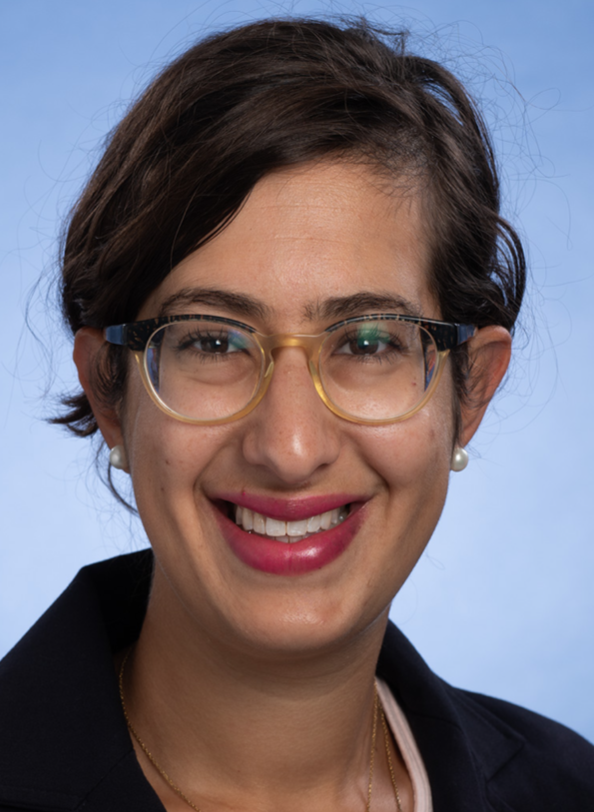
Dr. Sarah Levitt, MSc, MD FRCPC
Associate Director, Azrieli Brain Medicine Fellowship, University of Toronto
Staff Psychiatrist, Centre for Mental Health, University Health Network
Assistant Professor, Department of Psychiatry, Temerty Faculty of Medicine, University of Toronto
Dr. Levitt is a psychiatrist at the University Health Network working with the ACT Team and on the inpatient unit. She completed an MSc at the University of Oxford in the History of Science, Medicine, and Technology. Dr. Levitt graduated from medical school and residency at the University of Toronto (UofT). Dr. Levitt was the inaugural Brain Medicine Fellow at UoT. Dr. Levitt is the psychiatrist in the Brain Medicine Clinic at Sunnybrook Health Sciences Centre which provides interdisciplinary assessments for individuals with complex brain disorders. She is the Associate Director of the Azrieli Brain Medicine Fellowship at the University of Toronto. Her other academic interests include the development of palliative psychiatry and creating models to support mental health in the face of the climate crisis.
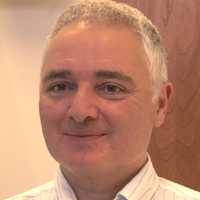
Dr. Giovanni Marotta, MD
Geratric Medicine Physician, Sunnybrook Health Sciences Centre
John is a geriatrician in Toronto. He is at Sunnybrook and Toronto Rehab in the academic chronic pain program. He works both in community and academic settings from acute to rehab and long-term care. He has been a principal investigator in cognitive studies for 26 years and is a board member of the C5R Cognitive Centers cooperative and past chair of its protocol review committee. During the pandemic, he completed an MBA in life sciences and healthcare to bring positive health system change for cognitive treatments and healthcare pathways.
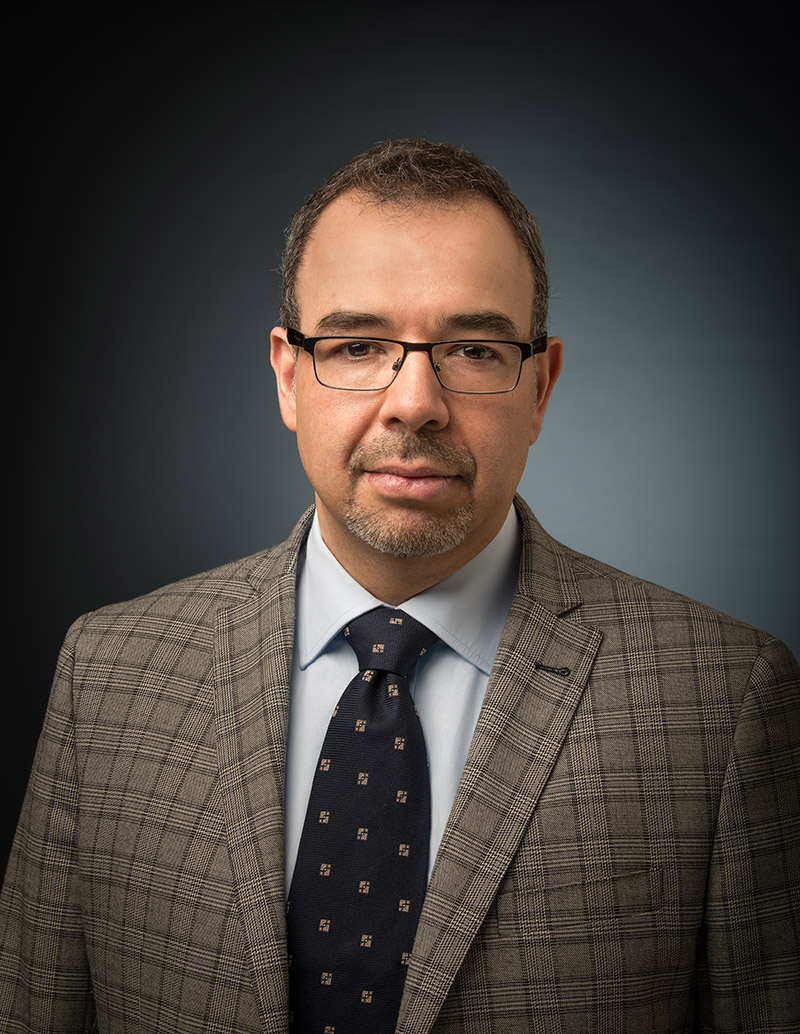
Dr. Mario Masellis, MSc, MD, PhD, FRCPC
Dr. Mario Masellis obtained his MSc in Pharmacology from the University of Toronto in 1997, completed his medical training at the University of Toronto in 2001 and obtained his board certification (FRCP Canada) in Neurology since 2006. He has completed a clinical research fellowship in Cognitive & Movement Disorders Neurology in 2008 and obtained a PhD in Clinical Neurosciences in 2012. He is a Clinician Scientist and Associate Professor within the Division of Neurology, Department of Medicine at Sunnybrook Health Sciences Centre and the University of Toronto. His clinical expertise is in the diagnosis and management of neurodegenerative diseases associated with dementia-parkinsonism, with a particular interest in the Parkinson-Lewy body disorder spectrum. His research focuses on how genomic factors impact neuroimaging and cognitive phenotypes, and response to drugs in Parkinson-Lewy body disorders. The goal of his research is to understand more about the underlying brain changes in Parkinson-Lewy body disorders and to improve on the conduct of clinical trials through the development of biomarkers and better outcome measures.

Dr. Sara Mitchell, MD FRCPC MPH
Director, Azrieli Brain Medicine Fellowship Program
Staff Neurologist, Division of Neurology, Department of Medicine
Assistant Professor, University of Toronto
Sunnybrook Health Sciences Centre
Dr. Sara Mitchell is a cognitive neurologist at Sunnybrook Health Sciences Centre in the Division of Neurology and an Assistant Professor at the University of Toronto. She completed her neurology residency training at the University of Toronto and fellowship training in cognitive neurology and neuropsychiatry from Massachusetts General Hospital. She obtained a Master's degree in Public Health (MPH) from the Harvard School of Public Health with a focus on clinical effectiveness. Dr. Mitchell's clinical interests are in neurodegenerative disorders and neuropsychiatric conditions and she is the director of the Azrieli Brain Medicine Fellowship Program at the University of Toronto, a novel cross-disciplinary fellowship in brain-related specialties. Dr. Mitchell has a keen interest in improving the quality of care and pace of innovation for patients with complex brain disorders impacting affect, behavior, and cognition (ABC).
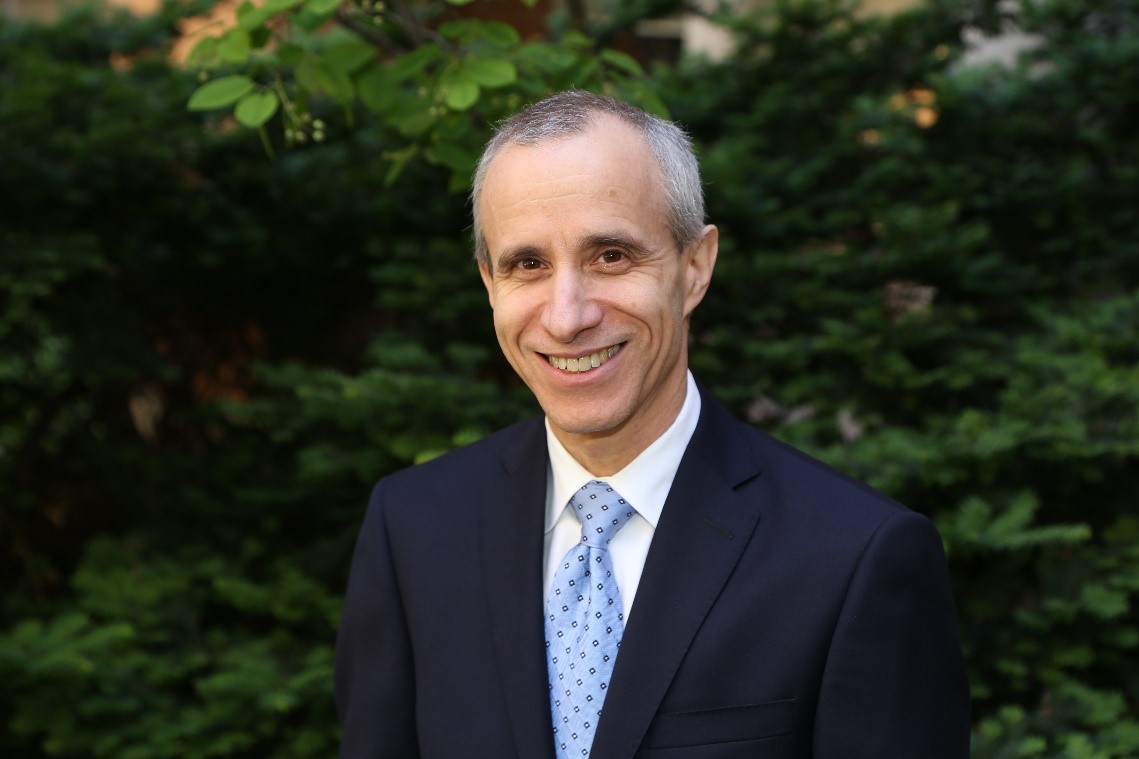
Dr. Gary Naglie, MD, FRCPC, FGSA
Professor, Department of Medicine and
Institute of Health Policy, Management & Evaluation,
University of Toronto
VP, Medical Services & Chief of Staff,
Chief, Department of Medicine, Baycrest
Dr. Naglie is a Professor in the Division of Geriatric Medicine, Department of Medicine and the Institute of Health Policy, Management and Evaluation at the University of Toronto. He is the Vice President of Medical Services and Chief of Staff, and Chief of the Department of Medicine at Baycrest Health Sciences. He is an Associate Scientist at Baycrest's Rotman Research Institute. His research focuses on driving issues in older adults with cognitive impairment and dementia. Dr. Naglie is the Co-Lead with Dr. Mark Rapoport of the Driving and Dementia Research Team for the Canadian Consortium on Neurodegeneration in Aging.
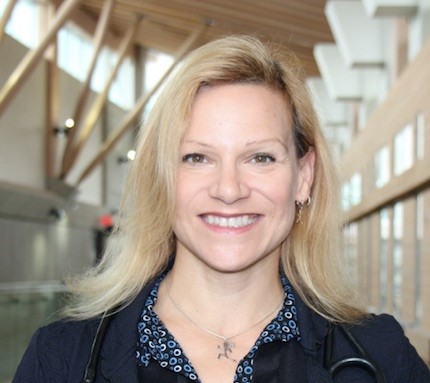
Dr. Jacqueline Pettersen, MD, MSc, FRCPC (Neurology)
Associate Professor and Cognitive Neurologist,
Division of Neurology, Department of Medicine, University of British Columbia & Affiliate Associate Professor, Division of Medical Sciences, University of Northern British Columbia
Dr. Pettersen is a Cognitive Neurologist and Associate Professor with the University of British Columbia and affiliate Associate Professor with the University of Northern BC, in her hometown of Prince George. She received her training from the University of Victoria (BSc Honours Biopsychology; MSc Neuropsychology), University of Toronto (MD; Clinical Research Fellowship under Dr Sandra Black) and University of Calgary (Neurology Residency). Nutrition and its role in cognition has been one major focus of her research, particularly the importance of vitamin D and other micronutrients. She has won international research awards for this work.
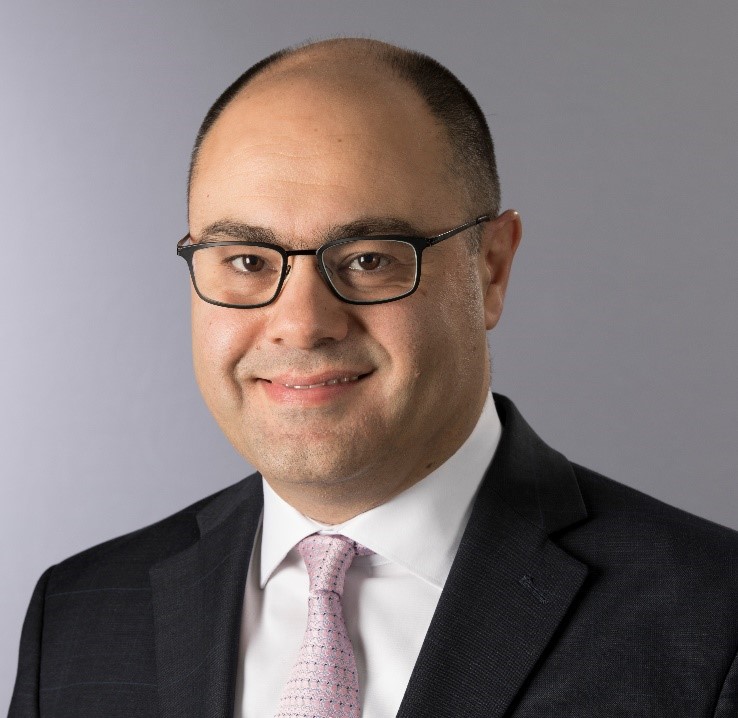
Dr. Tarek K. Rajji, MD, FRCPC
Professor of Psychiatry & Director, Geriatric Psychiatry Division
Executive Director, Toronto Dementia Research Alliance
Temerty Faculty of Medicine, University of Toronto
Canada Research Chair in Neurostimulation for Cognitive Disorders
Dr. Rajji is Professor of Psychiatry, Director of Geriatric Psychiatry Division & Executive Director of the Toronto Dementia Research Alliance at the University of Toronto. He also holds a Canada Research Chair in Neurostimulation for Cognitive Disorders. Dr. Rajji's research focuses on enhancing cognition in older adults with dementia or at risk for dementia using brain stimulation and clinical neurophysiology alone or in combination with other interventions.

Dr. Mark Rapoport, MD, FRCPC
Professor, Department of Psychiatry
Program Director, Geriatric Psychiatry
Faculty of Medicine, University of Toronto
Acting Head, Geriatric Psychiatry, Sunnybrook Health Sciences Centre
Co-Director, Ambulatory Care and Human Resources, Sunnybrook Psychiatry Partnership
Dr. Mark Rapoport is a Professor and residency program director in the geriatric psychiatry division of the Department of Psychiatry at the University of Toronto, past-president of the Canadian Academy of Geriatric Psychiatry (CAGP, 2012-2016), and acting head of Geriatric Psychiatry for Sunnybrook Health Sciences Centre. He founded two widely-recognized annual national review courses in geriatric psychiatry, and his main area of research focuses on motor vehicle collisions associated with neurological and psychiatric illness in older adults. He is a Distinguished Fellow of the Canadian Psychiatric Association and the American Association of Geriatric Psychiatry

Dr. Kenneth Rockwood, MD, MPA, FRCPC
Professor, Division of Geriatric Medicine , Department of Medicine , Department of Community Health and Epidemiology , School of Health Administration, Dalhousie University
Dr. Kenneth Rockwood is a professor of medicine (geriatric medicine and community health & epidemiology) at Dalhousie, a Canadian Institutes of Health Research investigator and an active staff physician. He is also the Kathryn Allen Weldon Professor of Alzheimer Research at Dalhousie University. A native of Newfoundland, he received his MD from Memorial University, and completed internal medicine training at the University of Alberta and geriatric medicine at Dalhousie University.
A leading authority on frailty, Dr. Rockwood has more than 400 peer-reviewed publications and nine books to his credit, including the eighth edition of the Brocklehurst's Textbook of Geriatric Medicine & Gerontology. He is a member of the executive committee of the Canadian Collaboration on Neurodegeneration in Aging where he leads the Quality of Life theme and the Knowledge Translation platform.

Dr. Saskia Sivananthan, PhD
Affiliate Professor, Department of Family Medicine, McGill University
An Affiliate Professor in the Department of Family Medicine at McGill University, and former Chief Research & KTE Officer at the Alzheimer Society of Canada, Dr. Sivananthan is an accomplished international strategy and policy advisor on dementia care.
She oversaw a tripling of the Alzheimer Society Research program funding, a dementia research priority setting leader and the only research funder who engages people living with dementia in all aspects of research. She is co-lead for the inaugural non-pharmacological interventions working group of the Canadian Consensus Guidelines on Dementia which developed the first Canadian recommendations on psycho-social interventions for the management and treatment of dementia.
She is a neuroscientist and health data scientist who has focused her work on dementia care.
In 2020, she was appointed by the Federal Minister of Health to the ministerial advisory board on dementia. Previously, Dr. Sivananthan served as a senior strategy and policy advisor consulting for the World Health Organization (WHO) on its global dementia strategy. She co-drafted the WHO's Global Action Plan on the Public Health Response to Dementia.
Dr. Sivananthan earned her PhD from the University of British Columbia.
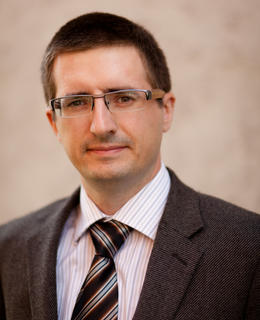
Dr. Dallas Seitz, MD, PhD
Professor, Cumming School of Medicine, Department of Psychiatry; Professor, Cumming School of Medicine, Department of Community Health Sciences; Hotchkiss Brain Institute; Mathison Centre for Mental Health Research and Education
Dr. Dallas Seitz is a Professor of Psychiatry and Community Health Sciences, in the Cumming School of Medicine, University of Calgary. He was the Provincial Medical Lead for Dementia Capacity Planning in Ontario and immediate past president of the Canadian Academy of Geriatric Psychiatry. His research focuses on mental health and dementia and examines health service utilization of older adults with psychiatric disorders; evaluation of the safety and efficacy of treatments for geriatric mental health conditions; and, knowledge translation in geriatric mental health. Dr. Seitz is actively involved in the development health system strategies, guidelines and policies related to seniors and mental health at both the provincial and national level.

Dr. Eric Smith, MD, FRCPC, MPH
Professor of Neurology, Cognitive Neurosciences, Stroke Program, University of Calgary
Dr. Eric Smith is the Medical Director of the Cognitive Neurosciences Clinic and a member of the Calgary Stroke Program. He is an Associate Professor in the Department of Clinical Neurosciences at the University of Calgary, and the inaugural holder of the Kathy Taylor Chair in Vascular Dementia.
He obtained his MD degree from McGill University and completed his neurology residency at Massachusetts General Hospital and Brigham and Women's Hospital, teaching hospitals of Harvard Medical School.
Dr. Smith's research program investigates the risk factors and consequences of diseases of the cerebral microcirculation, with the goal of improving the diagnosis, prevention and treatment of vascular contributions to cognitive decline and vascular dementia. His research work has been funded by Alberta Innovates – Health Solutions, Canadian Institutes of Health Research, Heart and Stroke Foundation of Canada, Alzheimer Society of Canada and the U.S. National Institute of Neurological Disorders and Stroke. He has received the Robert G. Siekert Award from the American Heart Association for his research work. He is an Assistant Editor for Stroke and is a member of the Editorial Board of the journal Neurology. Dr. Smith sees patients in the Cognitive Neurosciences Clinic and the Stroke Prevention Clinic.

Dr. Richard H. Swartz, MD, PhD
Associate Professor, Department of Medicine (Neurology), University of Toronto and Sunnybrook Health Sciences
Dr. Swartz is a clinician-scientist and stroke neurologist at Sunnybrook Hospital, University of Toronto. He was PI of the Ontario Neurodegenerative Disease Research Initiative, has co-chaired Canadian Best Practice Recommendations for Mood, Cognition, and Fatigue, and recently co-led the first set of recommendations specifically on Vascular Cognitive Impairment. Dr. Smith is a clinician-scientist stroke and dementia neurologist at the University of Calgary, where he holds the endowed Katthy Taylor Chair in Vascular Dementia.
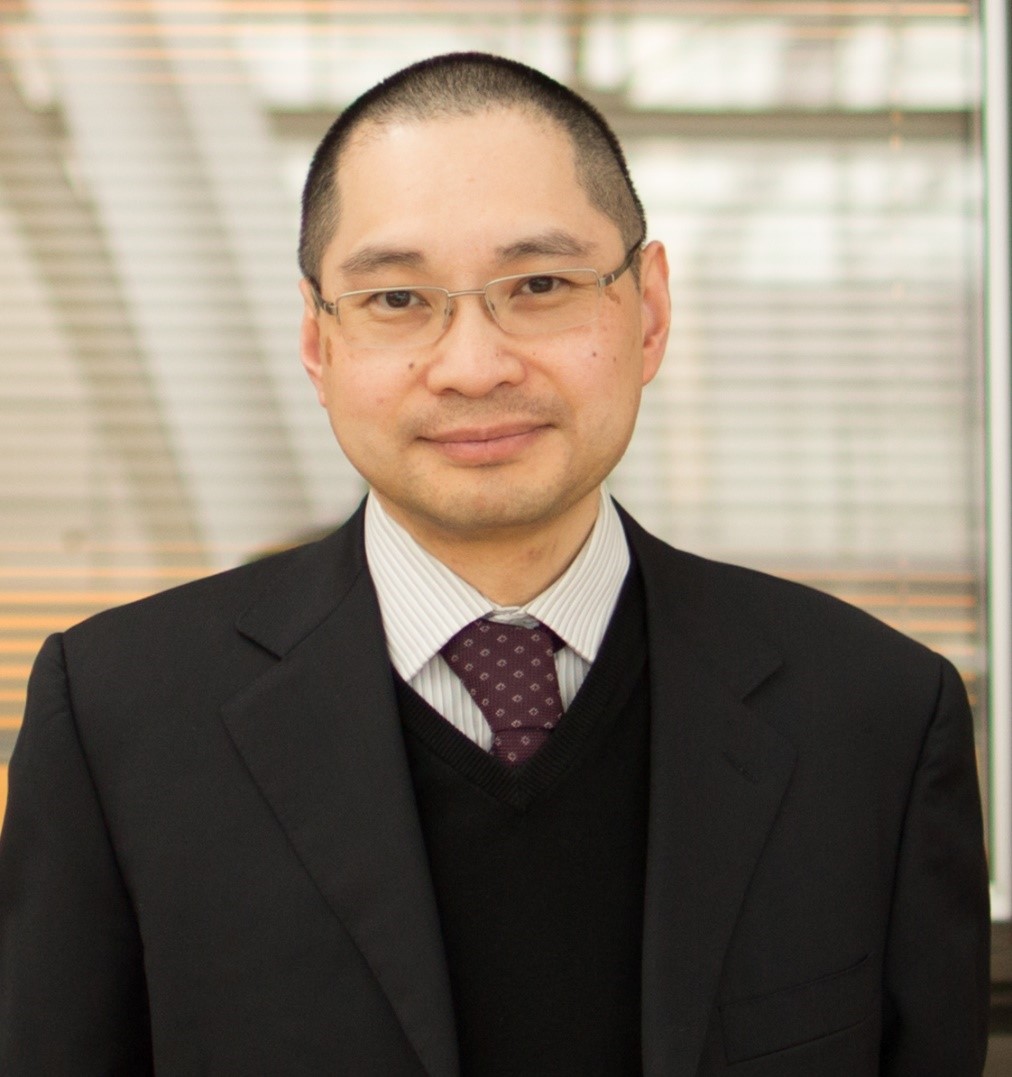
Dr. David F. Tang-Wai MDCM FRCPC
Professor (Neurology & Geriatric Medicine), Department Division Director (Neurology), University of Toronto, Co-Director University Health Network Memory Clinic, Clinician Investigator – Krembil Brain Institute.
Dr. David Tang-Wai is a professor of neurology and geriatric medicine at the University of Toronto. He received his MD degree from McGill University and completed his neurology residency and behavioral neurology fellowship at the Mayo Clinic. He is the division director of Neurology for the University of Toronto and the former program director of the adult neurology residency program. He is also the chair of the Scientific Advisory Committee of the Toronto Dementia Research Alliance. Dr. Tang-Wai is the co-director of the University Health Network Memory Clinic and director of the UHN Autoimmune Encephalitis Clinic. He has received multiple teaching awards and nominations from undergraduate and postgraduate trainees. Dr. Tang-Wai's research interests include progressive aphasias, the atypical presentations of Alzheimer's disease – especially posterior cortical atrophy, normal pressure hydrocephalus, and autoimmune encephalopathies.
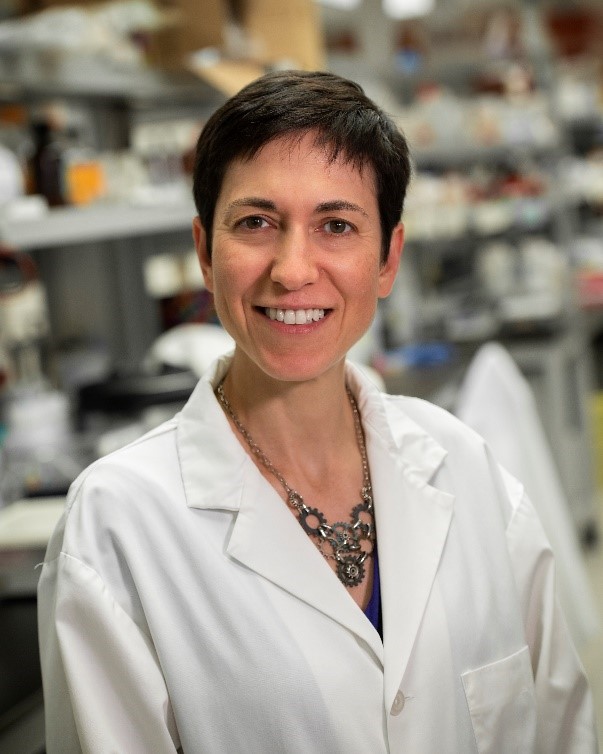
Dr. Carmela Tartaglia M.D., FRCPC
Marion and Gerald Soloway Chair in Brain Injury and Concussion Research
Associate Professor, Tanz Centre for Research in Neurodegenerative Diseases, University of Toronto
Co-director Memory Clinic - Toronto Western Hospital
PI-Canadian Concussion Centre, Krembil Brain Institute
Director Memory Clinical Trials Unit
Dr. Carmela Tartaglia is a clinician-scientist at the University Health Network and University of Toronto. She maintains a cognitive/behavioral clinic within the UHN Memory Clinic where she sees patients with neurodegenerative diseases and those with multiple concussions who are at risk of developing a neurodegenerative disease. She holds the Marion and Gerald Soloway Chair in Brain Injury and Concussion Research. She uses a multi-modal approach that combines imaging and biofluid biomarkers to better diagnose and understand the pathological substrates that cause cognitive, behavioral and motoric dysfunction. The goal of her research program is to develop biomarkers for early detection of disease to bring precision medicine and targeted, early treatments to her patients.
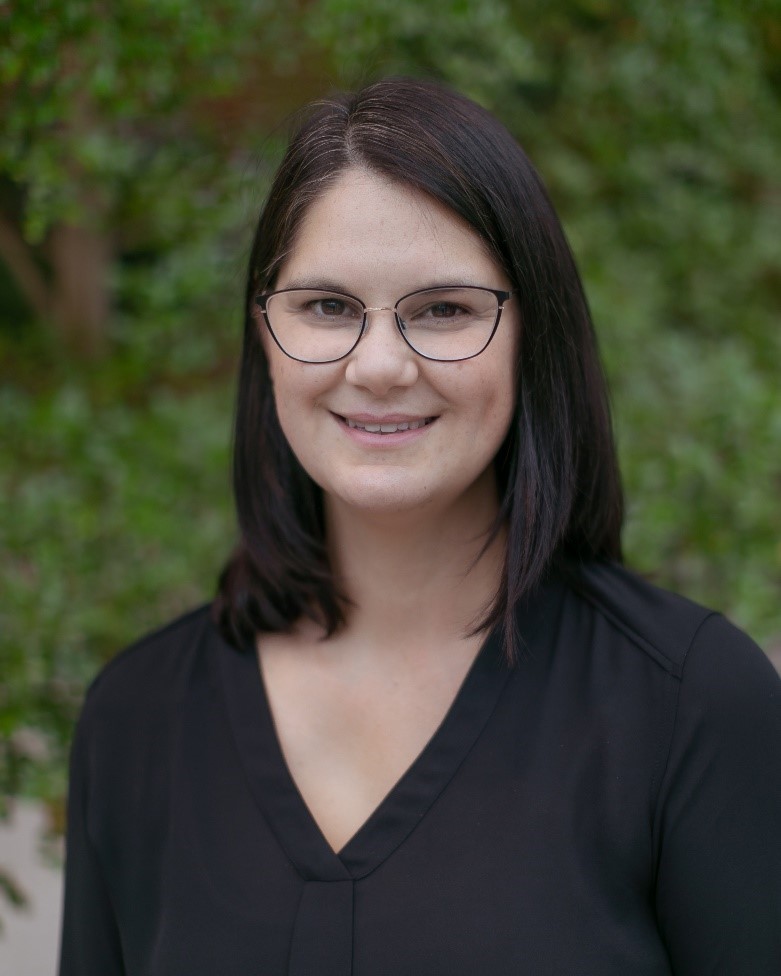
Dr. Jennifer Walker PhD (Epidemiology)
Assistant Professor, Department of Health Research Methods, Evidence, and Impact, McMaster University
Jennifer is a member of Six Nations and an Associate Professor in the Department of Health Research Methods, Evidence and Impact at McMaster University. She has a PhD in Community Health Sciences with a specialization in Epidemiology from the University of Calgary. She currently holds a Canada Research Chair in Indigenous Health Data and Aging.

Dr. Jennifer Watt MD, PhD, FRCPC
Geriatrician, St. Michael's Hospital and Providence Healthcare, Unity Health Toronto
Assistant Professor, Faculty of Medicine and IHPME, University of Toronto
Scientist, Li Ka Shing Knowledge Institute
Adjunct Scientist, ICES
Dr. Jennifer Watt is a geriatrician and clinician scientist at Unity Health Toronto and the University of Toronto. She completed her residency training in geriatric medicine and her PhD in clinical epidemiology and health care research at the University of Toronto. Her research focuses on improving the quality of care of older adults, in particular, those with geriatric syndromes like dementia.
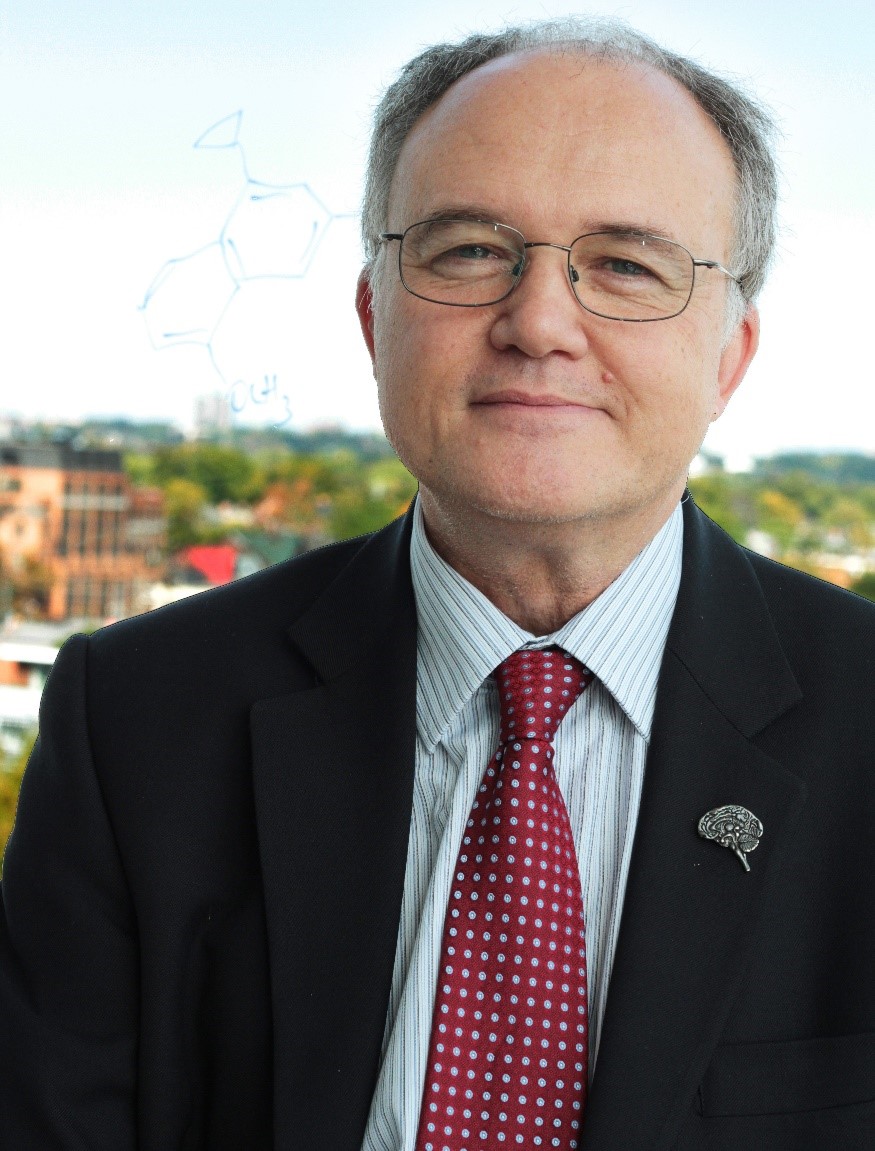
Dr. Donald F. Weaver MD, PhD, FRCP(C)
Krembil Chair in Drug Discovery for Alzheimer's Disease, University Health Network
Professor of Medicine and Chemistry, University of Toronto
Donald Weaver is the Krembil Chair in Drug Discovery for Alzheimer's disease at the Krembil Brain Institute. He is also a Senior Scientist at the University Health Network, a neurologist at the Toronto Western Hospital, and a Professor in the Departments of Medicine, Chemistry and Pharmaceutical Sciences at the University of Toronto. He obtained both his MD and his PhD in organic chemistry from Queen's University and has previously worked at Queen's and Dalhousie Universities. He has co-founded multiple biotech companies focussed on drug design for Alzheimer's and has had two agents reach Phase III human trials.
Date
11th CCD Conference
November 2-4, 2023
Times in the program are in Eastern Standard Time
Event Location
Sheraton Centre Toronto Hotel
Grand Ballroom, Lower Concourse Level
123 Queen Street West, Toronto
Ontario M5H 2M9
(416) 361-1000
Click here to visit website
Key Dates
Travel Grant Applications
Friday September 22
Early Bird Registration
Thursday September 21
Hotel Booking Cut-Off
Thursday October 12
Online Registration Closes
Monday October 30 @ 9AM EST
Information
UHN Conference Services
conferences@uhn.ca
Social Media
Click here to subscribe to our communications list.

 Copyright© 2017 | MYConference Suite Registration | D.E. Systems | All Right Reserved.
Copyright© 2017 | MYConference Suite Registration | D.E. Systems | All Right Reserved.